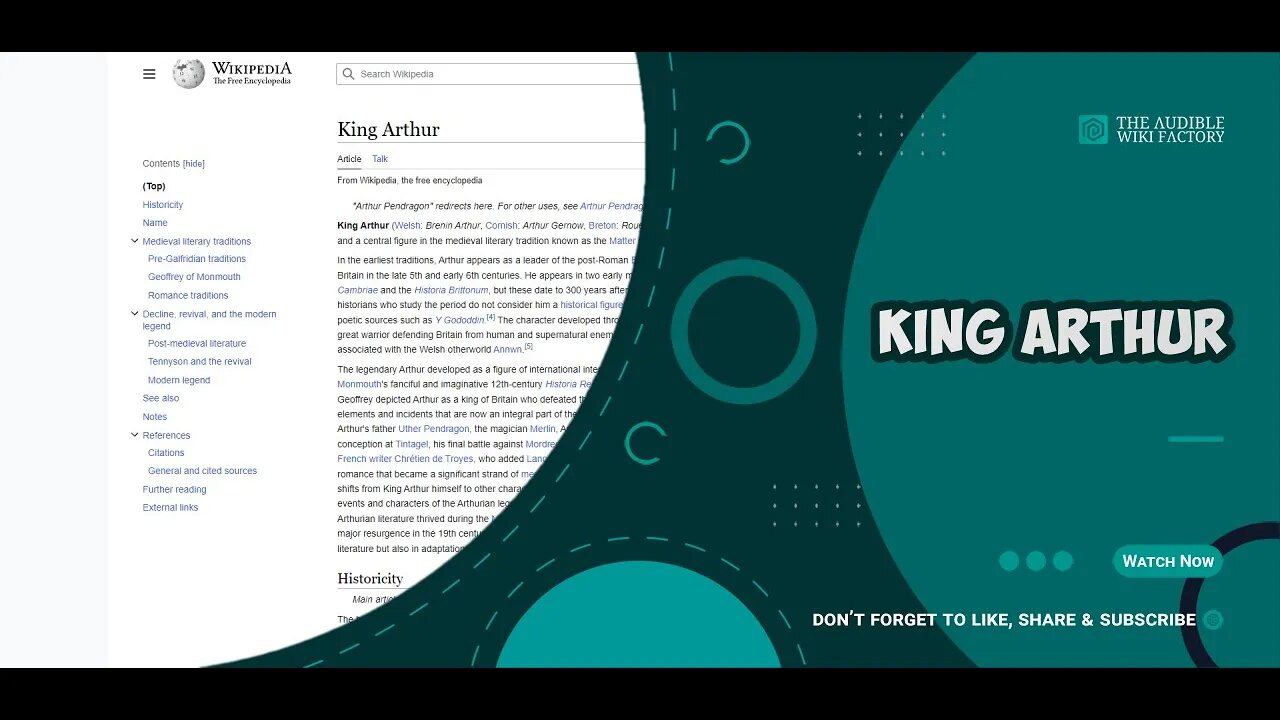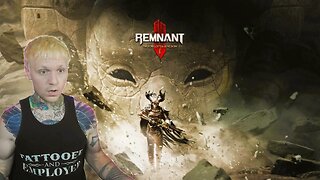Premium Only Content

King Arthur is a legendary king of Britain, and a central figure in the medieval literary
King Arthur is a legendary king of Britain, and a central figure in the medieval literary tradition known as the Matter of Britain.
In the earliest traditions, Arthur appears as a leader of the post-Roman Britons in battles against Saxon invaders of Britain in the late 5th and early 6th centuries. He appears in two early medieval historical sources, the Annales Cambriae and the Historia Brittonum, but these date to 300 years after he is supposed to have lived, and most historians who study the period do not consider him a historical figure. His name also occurs in early Welsh poetic sources such as Y Gododdin. The character developed through Welsh mythology, appearing either as a great warrior defending Britain from human and supernatural enemies or as a magical figure of folklore, sometimes associated with the Welsh otherworld Annwn.
The legendary Arthur developed as a figure of international interest largely through the popularity of Geoffrey of Monmouth's fanciful and imaginative 12th-century Historia Regum Britanniae (History of the Kings of Britain). Geoffrey depicted Arthur as a king of Britain who defeated the Saxons and established a vast empire. Many elements and incidents that are now an integral part of the Arthurian story appear in Geoffrey's Historia, including Arthur's father Uther Pendragon, the magician Merlin, Arthur's wife Guinevere, the sword Excalibur, Arthur's conception at Tintagel, his final battle against Mordred at Camlann, and final rest in Avalon. The 12th-century French writer Chrétien de Troyes, who added Lancelot and the Holy Grail to the story, began the genre of Arthurian romance that became a significant strand of medieval literature. In these French stories, the narrative focus often shifts from King Arthur himself to other characters, such as various Knights of the Round Table. The themes, events and characters of the Arthurian legend vary widely from text to text, and there is no one canonical version. Arthurian literature thrived during the Middle Ages but waned in the centuries that followed, until it experienced a major resurgence in the 19th century. In the 21st century, the legend continues to have prominence, not only in literature but also in adaptations for theatre, film, television, comics and other media.
HISTORICITY
The historical basis for King Arthur has been long debated by scholars. One school of thought, citing entries in the Historia Brittonum (History of the Britons) and Annales Cambriae (Welsh Annals), saw Arthur as a genuine historical figure, a Romano-British leader who fought against the invading Anglo-Saxons some time in the late 5th to early 6th century.
The Historia Brittonum, a 9th-century Latin historical compilation attributed in some late manuscripts to a Welsh cleric called Nennius, contains the first datable mention of King Arthur, listing twelve battles that Arthur fought. These culminate in the Battle of Badon, where he is said to have single-handedly killed 960 men. Recent studies, however, question the reliability of the Historia Brittonum.
Archaeological evidence, in the Low Countries and what was to become England, shows early Anglo-Saxon migration to Great Britain reversed between 500 and 550, which concurs with Frankish chronicles. John Davies notes this as consistent with the British victory at Badon Hill, attributed to Arthur by Nennius. The monks of Glastonbury are also said to have discovered the grave of Arthur in 1180.
The other text that seems to support the case for Arthur's historical existence is the 10th-century Annales Cambriae, which also link Arthur with the Battle of Badon. The Annales date this battle to 516 to 518, and also mention the Battle of Camlann, in which Arthur and Medraut (Mordred) were both killed, dated to 537 to 539....
LINK TO ARTICLE: http://en.wikipedia.org/wiki/King_Arthur
TAGS: King Arthur, Mythological swordfighters, Male characters in literature, Male characters in film, Male characters in animation, Legendary British kings, King Arthur's family, English mythology, English folklore, Burials at Glastonbury Abbey, British male characters in television, Knights of the Round Table, Welsh legendary characters, Welsh mythology, Welsh folklore, Arthurian legend
#GeneralKnowledge #AudibleWikiFactory #Audible #Wikipedia #KingArthur
-
 13:12
13:12
The Audible Wiki Factory
2 years agoThe Carnival of Venice is an annual festival held in Venice, Italy. The carnival ends on Shrove
540 -
 40:45
40:45
Donald Trump Jr.
5 hours agoPeace by Peace: Solving One Problem After Another | Triggered Ep.268
39.9K50 -
 LIVE
LIVE
FrizzleMcDizzle
2 hours agoRemnant 2 - Dark Souls-like Shooter?!
86 watching -
 LIVE
LIVE
FoeDubb
1 hour ago🏰KINGDOM MENU: 🏈FOOSBALL & 🎮DELTA FORCE PEW PEWS DILLY DILLY!!
21 watching -
 11:43:31
11:43:31
GritsGG
12 hours agoWin Streaking! Most Wins 3390+ 🧠
53.3K -
 1:08:29
1:08:29
TheCrucible
4 hours agoThe Extravaganza! Ep. 24 (8/19/25)
72.9K15 -
 4:22:25
4:22:25
sophiesnazz
6 hours ago $0.55 earnedLETS TALK ABOUT BO7 !socials !specs
13.2K -
 1:27:30
1:27:30
Redacted News
5 hours ago"There will be consequences!!!" Trump issues big threat to Putin ahead of peace summit | Redacted
97.8K159 -
 LIVE
LIVE
Amish Zaku
3 hours agoWar Thunder - Tank Tuesday - then Peak
58 watching -
 1:27:05
1:27:05
Kim Iversen
5 hours agoIsrael DEMANDS X Remove Posts and X COMPLIES | Socialist Groceries Coming To A Store Near You!
49.9K114